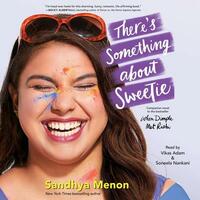Take a photo of a barcode or cover
Adorable romance?? Body positivity?? Handling conflict in mature ways?? HECK YEAH! Love this accompaniment to When Dimple Met Rishi.
Sweetie is an athlete, and a smart, funny, cute girl who happens to be fat. I enjoyed the depiction of 'fat' as someone who is healthy and strong, and all of the body positivity in this book. It's hard for me to imagine a mother who sets so much store in worrying about others' opinions and believing that her daughter can't ever be happy as long as she is fat, but the romance was sweet and the side characters well developed. Sweetie's relationship with her friends was great--they truly love and support her, but acknowledge that they can't understand what kind of bias she's had to deal with all of her life. And exploring Indian family dynamics and culture was a great facet of this book.
funny
hopeful
inspiring
lighthearted
reflective
relaxing
medium-paced
Plot or Character Driven:
Character
Strong character development:
Yes
Loveable characters:
Yes
Diverse cast of characters:
Yes
Flaws of characters a main focus:
Yes
4.5 stars. My favorite of Sandhya's books so far. I loved that it was such a cute, low angst romance and that the characters developed beautifully.
I will say tho I'm not happy with Celia being the cheating bisexual latina.
Other than that, it was a book that made me feel happy after reading it and I really love these characters both on their own and also together.
I will say tho I'm not happy with Celia being the cheating bisexual latina.
Other than that, it was a book that made me feel happy after reading it and I really love these characters both on their own and also together.
emotional
lighthearted
fast-paced
Plot or Character Driven:
Character
Strong character development:
Yes
Loveable characters:
Yes
Diverse cast of characters:
Yes
Flaws of characters a main focus:
Yes
lighthearted
Plot or Character Driven:
Character
Strong character development:
Yes
Loveable characters:
No
Diverse cast of characters:
Yes
Flaws of characters a main focus:
Yes



